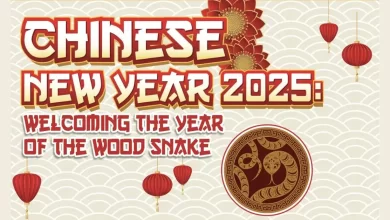Pak ganern! Hugot line. Pebebe. Charot. Chaka! Waley.
By now, you must have heard about or been using these words. But did you know where they came from? Certainly not from your Balarila class back in grade school. Also, did you know that some of them are now actually being used by other nationals in the UAE – take “pare” for instance.
The Filipino language has evolved such that even the Philippine government had to come up with a 73-page illustrated official guide for typhoon warnings that – to say the least – smacks of oddity. The book, while speaking of such Filipino phrases like “daluyong bagyo” to mean storm surge, and “hanging hagunot,” refering to gale-force winds, was entitled, “Patnubay sa Weder Forkasting,” yes, weder forkasting to mean “weather forecasting.”
The scholarly work, which took a year to complete, was released by the Komisyon sa Wikang Pilipino (KWP) back in June this year.
Filipinos also have Kawanihan ng Rentas Internas to mean the government office, Bureau of Internal Revenue (BIR), where kawanihan is vernacular for bureau and rentas internas, Spanish for internal revenue.
‘Superset language’
The blog site, GetRealPhilippines. com attempts to explain why this is so, saying “modern Filipino is a superset language…bigger than English itself.” It went on to assert that such being the case, “there is no point in translating nouns and technical terms into some absurdly sounding Tagalized equivalent.”
So, stop the nosebleed and take it from Kules and his dad, Mang Dagul of Pol Medina, Jr.’s ever popular Pugad Baboy, where Kules translated his father’s declamation, “They sacrificed life and limb,” saying, “Sinakripisyo nila ang kanilang life and limb,” to which the dad gave his son an inquisitive look. “Sige, paano ba Tatagalugin ang ‘life and limb?’” was the retort.
“Bastardization” of the Filipino language dates back to “a really long time ago,” linguists and etymologists say, noting how more than 350 years of subjugations by the Spanish, Americans and Japanese, mixed with equally long years of co-existence with the Chinese, have caused Filipinos to assimilate several of their words into the Tagalog language.
And this, experts suggest, spawned “street words” of which perhaps the farthest present-day Filipinos can go back to trace the evolution of, is in the 1960s-70s with the Filipinos’ follow-thru to the hippie slang of the US at the time; another explanation offered by linguists is that with the 70s being the height of military rule in the country where “anyone can be arrested for anything,” conversation needed to be discreet, even coded. Filipino words then were pronounced in a reversed manner – “olats” for instance, to mean “talo” or lose in English.
Perhaps predictably, the first victim of bastardization itself was the word “Filipino,” which evolved to “Pinoy” and “Noypi.”
And the list goes on.
Bastardized?
History guru and journalist Gloria Esguerra Melencio, in a published article, said one can easily spot a group of Filipinos in foreign countries as they banter and tell each other how their week has been in expressive and punctuated Filipino antics.
Melencio said overseas Filipino workers (OFWs), despite the distance from home, actually are the “best keepers and speakers of the native tongue.”
“While the word remittance, for example, is English, OFWs have given it a Filipino color and interpretation by spelling it ‘remitans.’ Language experts say this phenomenon has been brought about by global changes that happen as fast as how communication satellites can go,” Melencio said.
She also took the language of the youth as another example. “The text (SMS) generation of today spells the word promise as ‘pramis:’ ‘Dad, pasalubong. Pramis ha,’ they’d say when reminding their father not to forget to bring home a gift,” Melencio said.
Unknown to many, Melencio further said, “the ‘baklese’ language of the gay community has also slowly inched its way into the Filipino language.”
“Television, radio and newspapers bring the changes in the Filipino language to many households, making the words familiar and, in the end, acceptable,” she said. Melencio cited remarks by Dr. Ligaya Tiamson-Rubin, recipient of a multiple Carlos Palanca Memorial Awards for Literature, who said the Filipino language is “evolving with time.” “We must be open to changes and accept them as they come for our language to remain prolific and alive,” Tiamson-Rubin said, emphasizing that borrowing a foreign term and giving it a Filipino spelling does not lose the merit of the word.
“Is remitans Anglicized or Filipinized? Is it bastardized English or Filipino carabao-English?
It is a matter of debate whether we have been influenced by the colonial powers or not, but what is most important is that we understand each other and accept it as already ours. Inangkin na natin (We already claimed it as ours),” said TiamsonRubin, Filipino language professor at the University of the Philippines (UP).
Indeed, said Melencio, “Filipino as a language has truly evolved and matured after 60 years and it is now spoken or read by majority of Filipinos at home and abroad.”
Words that tell Pinoys away
With all the “bastardization” of the Filipino language, new words and catch phrases have sprang forth that further give Filipinos their distinct character in the UAE’s expatriate community.
Here are the top catch phrases and words that are very much Pinoy. Pak ganern Pak Ganern is similar to the other Filipino expression, “boom panes.” It simply connotes something big, amazing or wonderful.
My Friend
This is definitely what makes Filipino expatriates in the UAE stand out from the rest of the expat community. “My Friend” is a term widely used by most Filipinos addressing a different nationality. In fact, other nationalities have gotten so used to hearing Pinoys say this that they themselves use it when addressing Pinoys.
Char/ Charot
Char is the shorter version of “charot,” a term used to mean that what someone has said shouldn’t be taken that seriously. Char is often said at the end of a sentence.
Di siguro
This phrase means “maybe not” in English and is often used as a response to queries connoting daringness or a gamble. In other times, this phrase is also meant to downplay something or take the humble ground: OFW 1: “Yaman, nagpa-rebond.” OFW 2: “Di siguro, nagsuklay lang.”
Talaga ba? / Totoo ba?
This, in English, means “Really?”
Anong ganap?
Anong ganap is part of gay lingo which means what’s happening or what’s the event. How to be you, po? This is one the most popular catch phrases nowadays. This is a funny phrase millennials use when they want to tease you after uploading a new photo on social media or posting a witty FB status.
Pabebe
Pabebe had the social media spotlight for quite some time. Pabebe basically means trying to be cute or acting cute. No deriving word for this.
Don’t Me
Don’t me basically means Don’t (bother) me. It’s when someone is irritating you or doing something annoying to you but you are not having any of it. I Wag ka ngang ano In English, this means “Don’t be stupid.” It is used by Filipinos when they are agitated but doesn’t want to come strong with their emotions, hence they try to take the humor side of it.
Waley
Waley is derived from the word “wala” or “nothing in English Chaka! Chaka means ugly. No deriving word here except that chaka by itself sounds like an ugly word.
Kabayan
Kabayan or kababayan is Filipino for compatriot or someone from the same town as town in Filipino is “bayan.” Origins of the word are: kasamang bayan, shortened to kabayan (ka+bayan).
Weh, talaga lang!
Literally means “Oh, really.” Weh talaga lang is an expression most Tagalogs from Cabanatuan, Nueva Ecija normally use. Nueva Ecijanos always put “weh” in most of their sentences, just like Capampangans used “neh” and Batanguenos say “ala eh.”
Wait lang ha!
This catch phrase means “Please wait,” or “in a minute.” ganun? A variation of “really?” A word that conveys a sense of doubt or disbelief.
Hugot line
The word “hugot” originally means “to pull out.” With a variation, it is used to mean something said that’s coming from deep inside. It’s like saying something to get something out of your chest, thus pulling it out.
Yosi
Cigarette in English, from the Spanish “cigarillo” to mean small cigar and the Filipino version, sigarilyo; si and yo were retained and reversed to become, yosi.
Shota
From the English “short time” when lovers get a room for the night. Senglot From the Filipino word, “lasing” which means “drunk” in English.
(Anne Lora Santos and Henri Abenis-Macahilo)




